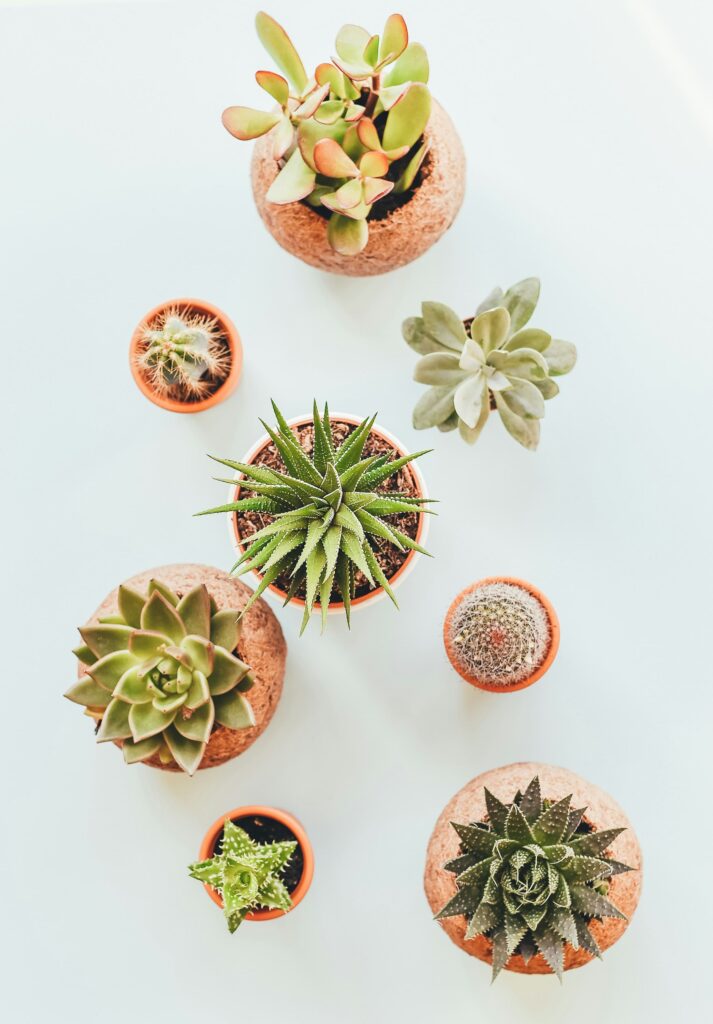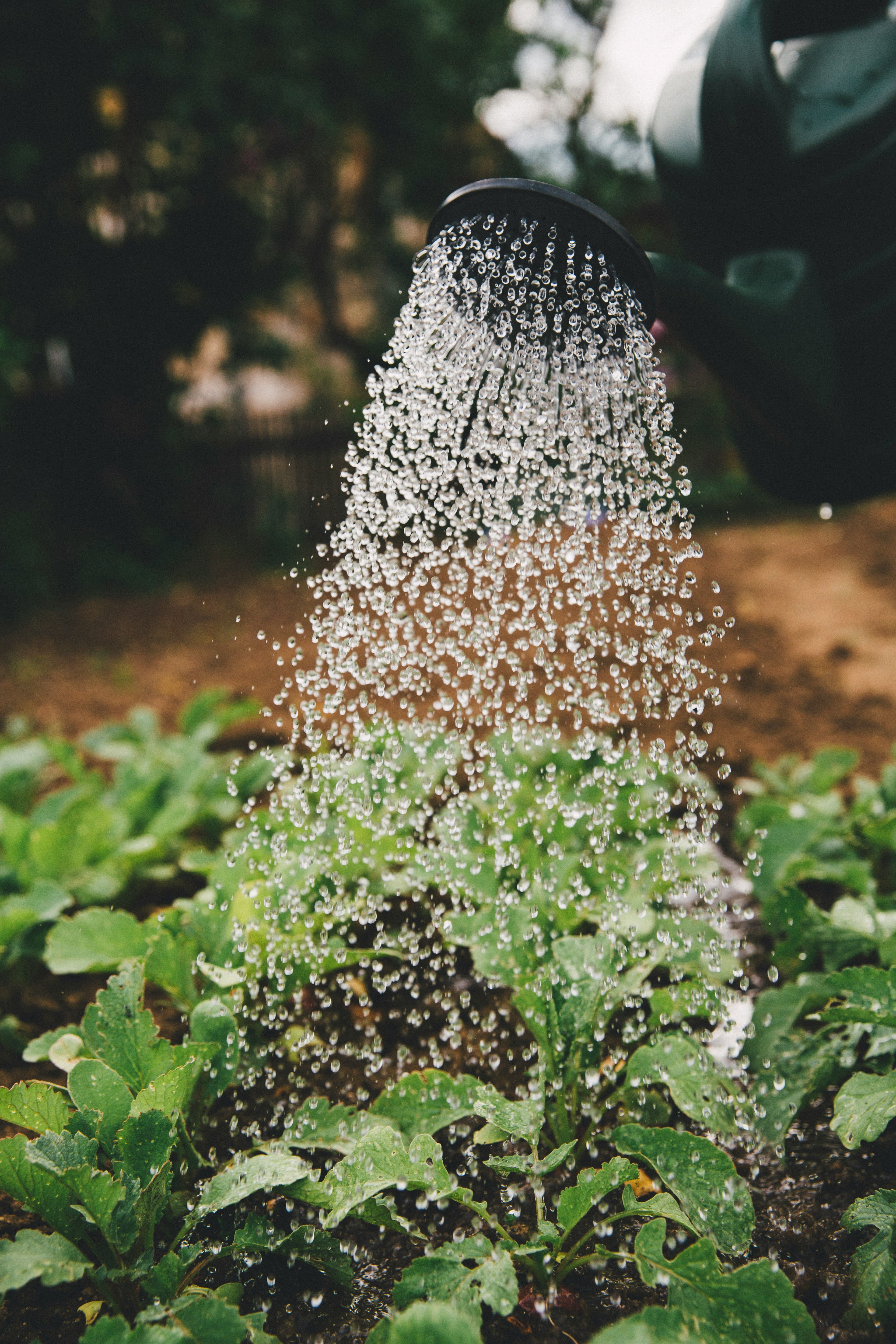In today’s fast-paced and digitally connected world, finding moments of peace and tranquility can be a challenge. However, the solution may be closer than we think – in our gardens. Gardening for mental wellness offers a unique way to cultivate inner peace and forge a deeper connection with nature. Whether you have a sprawling yard or a small balcony, nurturing plants can provide a much-needed respite from the pressures of daily life.
The Connection between Gardening and Mental Wellness
Engaging in gardening has been shown to have numerous mental health benefits. Not only does it offer a peaceful escape from the noise and distractions of modern life, but the act of tending to plants can also induce a sense of mindfulness and promote a calmer state of mind. Plus, engaging with nature has been found to reduce stress, anxiety, and symptoms of depression.
One of the reasons gardening is so effective at promoting mental wellness is the inherent connection it creates with the natural world. As human beings, we have an innate affinity for nature, and spending time outdoors among plants and greenery can help us feel grounded and connected. This connection with nature has a soothing effect on our minds and can provide a much-needed break from the constant stimulation of screens and technology.
Benefits of Gardening for Mental Health
The benefits of gardening for mental health are vast and varied. Research has shown that engaging in gardening activities can have a positive impact on our overall well-being. Here are some key benefits:
- Stress Reduction: Gardening provides a therapeutic outlet for stress relief. The act of digging in the soil, planting seeds, and tending to plants can help redirect our focus and provide a calming effect on our nervous system. The rhythmic and repetitive nature of gardening tasks can induce a state of relaxation and reduce stress levels.
- Mood Enhancement: Spending time outdoors and engaging with nature has been shown to boost mood and increase feelings of happiness. The exposure to sunlight helps our bodies produce vitamin D, which is essential for mental well-being. Additionally, the act of nurturing plants and witnessing their growth can create a sense of accomplishment and fulfillment, leading to an improved mood.
- Mindfulness and Presence: Gardening is a perfect opportunity to practice mindfulness and be present in the moment. When we are engaged in gardening tasks, such as weeding or pruning, we become fully immersed in the activity at hand. This focus on the present moment can help quiet our racing thoughts and provide a break from the constant stream of worries and concerns.
- Physical Exercise: Gardening is a physical activity that provides an opportunity to get moving and engage in low-impact exercise. Digging, planting, and carrying pots or bags of soil can help improve strength, flexibility, and cardiovascular health. Regular physical activity has been linked to improved mental health and can contribute to a sense of well-being.
- Sense of Purpose: Taking care of plants and watching them thrive gives us a sense of purpose and responsibility. It provides a reason to get up in the morning and engage in meaningful activity. Gardening can be especially beneficial for individuals struggling with mental health issues or a sense of emptiness, as it creates a sense of connection and purpose.
Gardening as a Form of Therapy
Gardening has long been recognized as an effective form of therapy for individuals dealing with mental health challenges. Horticultural therapy, as it is formally known, utilizes gardening activities and the natural environment to improve cognitive, physical, and emotional well-being. This therapeutic approach can be particularly beneficial for individuals with depression, anxiety, PTSD, and other mental health conditions.
The act of gardening itself can be a form of therapy, but horticultural therapy often involves structured programs led by trained professionals. These programs may include activities such as planting and tending to gardens, nature walks, and group discussions. The goal is to use gardening as a means of self-expression, stress reduction, and personal growth.
Research has shown that horticultural therapy can lead to a reduction in symptoms of depression and anxiety, an improvement in overall mood and self-esteem, and an increase in social interaction and community engagement. It provides a safe and nurturing space for individuals to connect with nature, express themselves, and find solace in the therapeutic benefits of gardening.
The Science Behind Gardening and Its Impact on Mental Well-being
The positive impact of gardening on mental well-being is not just anecdotal – it is backed by science. Numerous studies have explored the relationship between gardening and mental health, and the results have been consistently positive.
One study conducted at the University of Essex in the United Kingdom found that engaging in gardening for just 30 minutes significantly reduced symptoms of depression and anxiety. The researchers discovered that the presence of a specific soil bacteria, Mycobacterium vaccae, triggered the release of serotonin in the brain, which is often referred to as the “happy hormone.” This serotonin boost can have a profound impact on our mood and overall mental well-being.
Another study conducted by researchers at the University of Exeter in the United Kingdom found that individuals who engaged in gardening activities had lower levels of cortisol, the hormone associated with stress. The study also showed that the positive effects of gardening on mental health lasted long after the gardening session had ended, indicating the long-term benefits of this activity.
These scientific findings highlight the biological and psychological mechanisms through which gardening can positively impact mental wellness. From the release of mood-enhancing neurotransmitters to the reduction of stress hormones, gardening has a profound impact on our brain chemistry and emotional well-being.
How to Start a Garden for Mental Wellness
Starting a garden for mental wellness is a rewarding and fulfilling endeavor. It doesn’t matter if you have a large backyard or a small balcony – you can create a space that nurtures your mental health and provides a sanctuary for relaxation and connection with nature. Here are some practical tips to get started:
- Assess Your Space: Take a look at your available space and assess what type of garden would be feasible. If you have a yard, consider creating a dedicated garden bed or even a vegetable patch. If you only have a balcony or a small outdoor area, explore container gardening or vertical gardening options.
- Choose the Right Plants: Select plants that align with your preferences and the conditions of your space. Consider factors such as sunlight exposure, water requirements, and the climate in your area. Choose plants that are known for their calming and soothing properties, such as lavender, chamomile, or jasmine.
- Start Small: Don’t overwhelm yourself by taking on too much at once. Start with a few plants that are easy to care for and gradually expand your garden as you gain confidence and experience. This will ensure that you don’t feel overwhelmed and can enjoy the process of gardening without added stress.
- Create a Design: Plan your garden layout and design to create a visually pleasing and functional space. Incorporate elements such as pathways, seating areas, and focal points to enhance your garden’s appeal. Consider adding elements that engage your senses, such as wind chimes or a small water feature.
- Practice Sustainable Gardening: Opt for organic and eco-friendly gardening practices to create a sustainable and environmentally conscious garden. Use natural pest control methods, compost kitchen scraps, and conserve water whenever possible. By caring for the earth, you will also be nurturing your own mental well-being.
- Garden with Intention: Approach gardening as a mindful and intentional practice. Slow down and savor each moment as you engage with your plants. Pay attention to the sounds, scents, and textures of the garden. Be fully present and allow yourself to immerse in the experience of nurturing and cultivating life.
- Seek Support and Inspiration: Join local gardening communities, attend workshops, or connect with fellow gardening enthusiasts online. Sharing your gardening journey with others can provide support, inspiration, and valuable insights. Learn from experienced gardeners and exchange tips and ideas to enhance your own mental wellness garden.
By following these tips and approaching gardening with a mindful and intentional mindset, you can create a garden that not only enhances your mental well-being but also becomes a source of joy and connection with nature.
Choosing the Right Plants for Your Mental Health Garden
Selecting the right plants for your mental health garden is an important consideration. Certain plants have been found to have calming and stress-reducing properties, making them ideal for creating a peaceful and soothing environment. Here are some plants known for their mental health benefits:

- Lavender: Lavender is renowned for its calming properties. Its scent has been shown to reduce anxiety and promote relaxation. Plant lavender near seating areas or pathways to enjoy its soothing aroma.
- Chamomile: Chamomile is often consumed as a tea for its calming effects, but it can also be grown in your garden. Its delicate flowers and sweet scent can create a tranquil atmosphere.
- Jasmine: Jasmine is known for its intoxicating fragrance, which has been found to have mood-enhancing properties. Plant jasmine near windows or seating areas to enjoy its scent.
- Rosemary: Rosemary has a refreshing and invigorating scent that can help improve focus and mental clarity. It is also known for its resilience, making it an excellent choice for beginner gardeners.
- Mint: Mint has a refreshing scent that can help uplift your mood and provide a sense of energy and vitality. It is a fast-growing herb that can be easily grown in containers.
- Aloe Vera: Aloe vera is not only a beautiful succulent but also has healing properties. Its gel can be used to soothe skin irritations, which can have a calming effect on the mind.
- Snake Plant: Snake plants are known for their air-purifying properties. They can remove toxins from the air and create a healthier indoor environment, which can positively impact mental well-being.
Remember to consider the specific growing conditions and climate in your area when choosing plants for your mental health garden. Research the care requirements of each plant and ensure they are suitable for your space before planting.
Creating a Peaceful and Mindful Gardening Space

Creating a peaceful and mindful gardening space is essential for maximizing the mental health benefits of gardening. Your garden should be a sanctuary where you can escape the noise and distractions of daily life and find solace in nature. Here are some tips for creating a peaceful and mindful gardening space:
- Designate a Quiet Corner: Set aside a specific area in your garden for quiet reflection and relaxation. This can be a secluded corner, a bench under a tree, or a small patio with comfortable seating. Make it a designated space where you can retreat to when you need a moment of peace.
- Add Natural Elements: Incorporate natural elements such as rocks, pebbles, or driftwood to create a sense of harmony and grounding in your garden. These elements can add texture and visual interest while connecting your space with the natural world.
- Create a Water Feature: The sound of flowing water can have a calming effect on the mind and drown out external noise. Consider adding a small fountain, a birdbath, or even a DIY pond to your garden. The sight and sound of water can create a serene and peaceful ambiance.
- Use Colors Mindfully: Colors have a profound impact on our emotions and can influence our mood. Choose a color scheme that promotes tranquility and relaxation, such as cool blues, soft purples, or calming greens. Incorporate these colors through flowers, foliage, or garden accessories.
- Integrate Scents: Fragrances have a powerful effect on our mood and can evoke feelings of calm and happiness. Plant fragrant flowers or herbs that release soothing scents, such as lavender, jasmine, or roses. Consider adding scented candles or essential oil diffusers to enhance the sensory experience.
- Minimize Clutter: A clutter-free space helps create a sense of calm and order. Keep your gardening tools organized, remove any unnecessary items, and maintain a tidy and well-maintained garden. This will allow you to fully focus on the present moment and enjoy the serenity of your garden.
Remember, the key to creating a peaceful and mindful gardening space is to prioritize simplicity, harmony, and connection with nature. By designing your garden with these principles in mind, you can create a space that nurtures your mental well-being and provides a refuge from the demands of everyday life.
Incorporating Mindfulness and Meditation into Your Gardening Routine
Gardening provides a unique opportunity to practice mindfulness and meditation. By bringing conscious awareness to each gardening task, you can deepen your connection with nature and cultivate a sense of inner peace. Here are some ways to incorporate mindfulness and meditation into your gardening routine:

- Begin with Breath Awareness: Before you start gardening, take a few moments to focus on your breath. Close your eyes and take deep, slow breaths, allowing yourself to fully arrive in the present moment. This will help calm your mind and prepare you for a mindful gardening experience.
- Engage Your Senses: As you garden, engage all your senses – sight, smell, touch, sound, and even taste. Notice the vibrant colors of the flowers, inhale the scent of the soil or flowers, feel the texture of the leaves, listen to the sounds of birds or rustling leaves, and, if applicable, taste the fresh herbs or fruits you’ve grown. By fully immersing your senses, you can enhance your connection with nature.
- Practice Slow and Deliberate Movements: Slow down your gardening movements and perform each task with intention. Whether you are planting seeds, watering plants, or pruning, do it mindfully, focusing on the sensations and movements involved. Notice how your body feels and how the plants respond to your touch.
- Observe and Appreciate Growth: Take time to observe the growth and changes in your garden. Notice the tiny sprouts breaking through the soil, the unfurling of leaves, and the blossoming of flowers. Cultivate a sense of wonder and gratitude for the beauty and resilience of nature.
- Take Breaks for Contemplation: Pause during your gardening session to sit or stand in a comfortable position. Take a few moments to simply be present and observe your surroundings. Allow your mind to quiet and your thoughts to settle. This can be a time for reflection, gratitude, or simply enjoying the peacefulness of your garden.
- End with Gratitude: Before you finish your gardening session, take a moment to express gratitude for the experience. Reflect on the joy and connection you’ve cultivated through gardening. Offer thanks to the plants.
Community Gardening and its Social Benefits
Gardening doesn’t have to be a solitary activity. Community gardens provide an opportunity to connect with others who share a love for plants and nature. Joining a community garden can foster a sense of belonging and create opportunities for social interaction and connection.
In addition to the social benefits, community gardening can also provide access to resources and knowledge. Experienced gardeners can offer guidance and support, helping beginners learn the ropes and grow their gardening skills. Working alongside others in a shared space can also create a sense of camaraderie and teamwork.
Community gardens often organize events and workshops, allowing individuals to further expand their knowledge and engage in educational activities. These gatherings can foster a sense of community and provide opportunities for learning and personal growth.
Conclusion: Cultivating Peace and Connection Through Gardening
Gardening for mental wellness is a powerful tool that allows us to cultivate inner peace and forge a deeper connection with nature. Whether you have a small balcony or a sprawling yard, nurturing plants can provide a much-needed respite from the pressures of daily life.
The act of tending to plants and immersing ourselves in the natural world can have profound effects on our mental health. It reduces stress, promotes mindfulness, and offers a creative outlet for self-expression. Gardening also provides an opportunity to engage with nature, fostering a sense of connection and reminding us of our place in the larger ecosystem.
So, grab your gloves and shovel, and start cultivating your own peaceful oasis. Whether you choose to create a small herb garden or a vibrant flower bed, the benefits of gardening for mental wellness are waiting to be discovered. Embrace the therapeutic power of gardening and watch as it transforms your well-being, one plant at a time.
Remember, nurturing your mental wellness is just as important as tending to your garden. Take the time to slow down, breathe, and savor the beauty that surrounds you.
